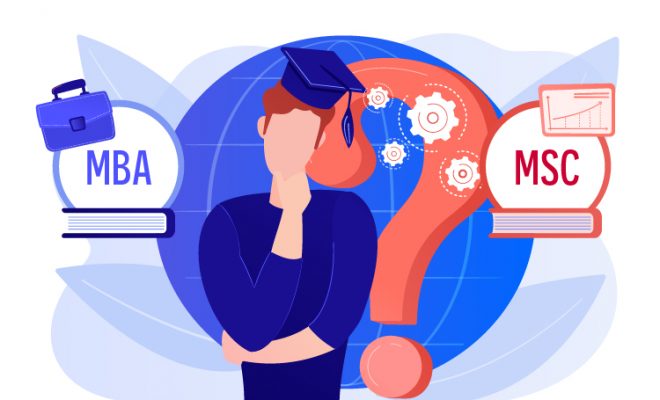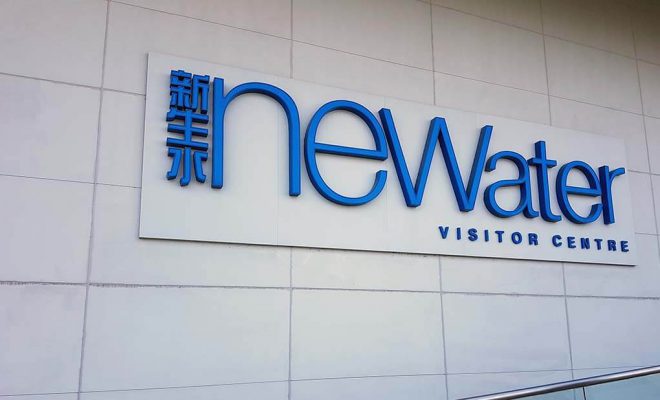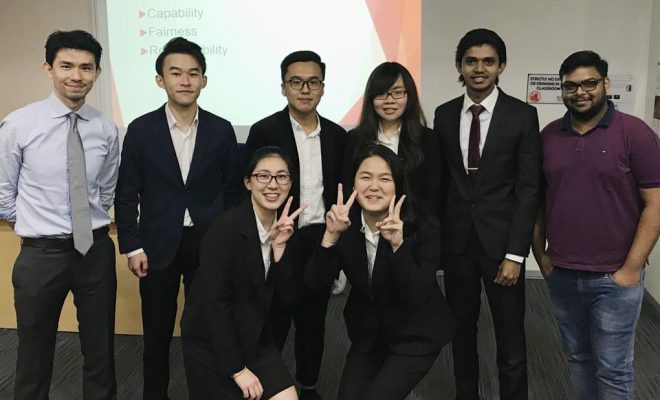The Difference between a DBA and PHD

Transcript:
Dr Alby:
Good morning. It’s so wonderful to have all of you here and to share our thoughts on the DBA programme. And just to introduce myself, my name is Dr Alby Anand Kurian. That’s a very, very long name. So, everybody just calls me Dr Alby. And I hope you’ll call me that when you come in as students of the doctorate programme. And I’m here to tell you a little about it along with my favourite student, Joshua, as well as other students who will appear on the programme. Just to give you a brief introduction to myself. As I said, my name is Dr Alby. I have been featured among 30 marketing people in the world. And my most recent concept was Conflict as a Marketing Tool. And you’ll be happy to know that this has been published and republished by Wharton Business School, and is now a permanent part of the teachings at Wharton Business School. One of the very wonderful things about MDS as well as Teesside University is the strong faculty support that you have here. We are always with you, and sometimes our students have called us mother hens.
Mr Joshua:
That’s a good description, helping us the chicks.
Dr Alby:
Without further ado, I would like to introduce Joshua to you. And Joshua, would you like to tell them a little about yourself?
Mr Joshua:
Thanks Dr Alby. Good morning to you all – ladies and gentlemen out there. I know you want to find out more about the postgraduate studies, especially for the DBA segment. My name is Joshua. I’m a global Master Trainer and an international speaker, and a celebrity master personal branding consultant. I have my own training academy signature image Academy International. About three years ago, I took up this doctorate with Teesside University at MDIS because I wanted to see how the studies can help me to propel my business and my training my work to the next level with a doctorate designation, so I’ll share with you more later as we go along.
Dr Alby:
Shall we start with a small summary of the entire programme? This is from a very, very old friend of ours, Warren Harrison. He is the Associate Dean International of Teesside University, and unfortunately, because of the lockdown all over the world, he couldn’t be with us. But we had a conversation with him. So here it is Warren Harrison, giving us a brief summary about the entire doctorate programme.
Mr Warren Harrison:
My name is Warren Harrison, and I’m the Associate Dean International of the Teesside University Business School. We lead the school’s international portfolio, which includes developing strategic partnerships with overseas education providers, such as MDIS. Teesside University generates and applies knowledge contributes to the economic, social, and cultural success of our students, partners and the communities that we serve. Through education enriched by research, innovation and engagement with business and the professions, we seek to transform lives and economies. We have a long history of innovation in learning and teaching research and enterprise, and highly focused on the experience of our students, both traditional students and undergraduate and postgraduate programmes, as well as professionals returning to study to advance their careers. The DBA programme is designed to enable professionals to innovate in their chosen field in order to generate new knowledge and practice that enhances current approaches. The taught stage of the programme consists of two modules that enable the development of doctoral research skills and understanding and the exploration of current issues that businesses and organisations currently face. These two modules prepare the students for their thesis. One of the most valuable aspects of the programme is the opportunity of learning alongside other professionals who are drawn from a variety of organisations and businesses. And this provides a rich, professional peer-to-peer learning experience. Each DBA student is appointed a Director of Studies (DOS) and the second supervisor. The Director of Studies is an academic at Teesside University Business School. And the second supervisor is from the team here at MDIS. And this provides a strong team for the students to develop their work. However, as this is a DBA, the student is very much expected to take the lead in their work, and the supervisory team act as critical friends to support the students in their work. PhD students undertake the programme in order to gain a highest academic qualification, a doctorate in the programme, explore an issue that is important to them in their on-going professional development, as well as the strategic development of their organization. Most often the work undertaken for the thesis will have lasting beneficial effects long after the work has been completed, and will enable a level of demonstrable academic and professional expertise as a basis for further and future development. So, if you’re a professional here in Singapore, and you wish to innovate in your organisation and in your business, drive change, and achieve a doctorate qualification, then I would wholeheartedly recommend the programme delivered by MDIS and Teesside University Business School.
Dr Alby:
Thank you so much, Warren, that summarises the DBA programme so very well. It gives you a brief overview. I thought, Joshua, now we could move over to one of the supervisors at Teesside University, as you know, as you are, you’re going through the same process right now – two levels of supervisors.
Mr Joshua:
Actually, what Warren mentioned sums up the whole structure of the DBA programme. One stage is a taught stage of two modules. So, you need to do just two modules to help you to get towards writing the thesis. Year 1, one module, one assignment. Year 2, one module, one assignment and Year 3 thesis Now I’m in the third year of doing my thesis. So, it’s just as simple as that, because we’re all professionals, and time to us might be a factor. So, learning about module one, module two, for us to know how to do research and write the thesis, then our last year is focused on writing the thesis that makes things so easy for all of us here.
Dr Alby:
I really enjoy it. Absolutely. And when Joshua starts writing the thesis which happens in his second year, he has two levels of supervisors. One is the local supervisor at MDIS in Singapore, and the other is the Teesside supervisor from UK, who is known as the Director of Studies. And in order to explain this process a little more, as well as to explain what is the exact difference between a DBA programme and PhD is a very good friend of mine, Dr- Jennifer Hagen, She is a favourite with all of us, the professors as well as the students. Let’s go ahead with the video? Here is Dr Jennifer.
Dr Alby:
Good morning, Dr Jennifer.
Dr Jennifer:
Morning, Dr Alby, how are you?
Dr Alby:
Good. It’s so nice to be with you during this weekend chat. It’s lovely to be able to talk and I must say that she’s the favourite of a lot of our students. And sometimes I wish that I when I was a doctorate student, had her as my supervisor.
Dr Jennifer:
You’re very kind, I’m sure it’s not completely true.
Dr Alby
Many of our students and prospective students will be interested to know that we have a two-tier supervisory programme. Would you like to tell the students about that? Dr Jennifer?
Dr Jennifer:
Yeah, um, so it’s not two-tier in much of a hierarchical sense. The Director of Studies always has the ultimate responsibility to direct the studies in their students, so the student will deal with them more in emails and meetings and in reviewing draft work. But it’s very much a team approach. The second supervisor can often have specialists in the particular area that the student is studying in that the DOS might not. Or it can be the other way around. It’s all about different perspectives on things. And making the most of that really is to have the broadest approach to that piece of work. And the second supervisor in MDIS, Singapore helps with providing some context you know, where we’re over here in the UK, and we don’t necessarily know how things are working and what’s going on over there, and vice versa, as well So between us, we’ve got a pretty global perspective on things, actually.
Dr Alby:
It’s a wonderful team. I mean, with the student at the centre of it all.
Dr Jennifer:
Yes, absolutely. And even though we’re very far away, actually, a lot of it works in much the same way as if we were in the same institution, and we work very well together, considering it’s quite a new initiative really working with MDIS, and it’s working really well.
Dr Alby:
You know, when we were all doing a doctorate, I don’t think the doctorate, the DBA program even existed in those days. So, there are many prospective students who wonder what the DBA programme is all about, and obviously, they know that it’s a doctorate programme, but how is it different from a PhD?
Dr Jennifer:
Well, when I had started my PhD, back in 2014 at Teesside, I’m not sure if the DBA existed then. But it existed before I finished. So, it was quite often a bit of an informal joke around colleagues, that my work was sort of on the boundary between the DBA and a PhD, because they are very related in the sense that they are the same level of qualification. And that you still have to make a significant contribution to knowledge, but they are different in terms of the word count, obviously, which is the first obvious difference. But also, the attention that needs to be paid in terms of a contribution to practice. So, I can’t do research without knowing that there is going to be that impact on an organisation or in the local community for people. And that is what you get from a DBA. So that’s where that sort of that informal joke kind of happened. And that is kind of the difference that can be seen as a sort of an extra pressure, but at the same time, you have to have less of a word count. And it’s definitely a benefit, at the same time that you get to see the potential outcomes of what it is that you’re researching for people. So, there are differences in similarities, but it’s important to remember that you still do need to make that level of contribution to knowledge that you would do with a PhD and look at it in the same way they have the same weighting, I guess,
Dr Alby:
Absolutely. They are both at the same in terms of being the highest degree that you can achieve in your particular area. I mean, they’re both at the highest level of academics. And I think it’s very interesting that the DBA is more hands-on, and grounded. It’s much more grounded in the day-to-day realities of running a business at the marketplace, etc. It’s about probing the realities that exist in each student’s business or in each student’s workplace. So, they can actually ground their entire research in their own companies, if they so wish.
Dr Jennifer:
Absolutely, and to help everyone achieve more, ultimately.
Dr Alby:
Thank you. Thank you so much, Dr. Jennifer, it was a pleasure talking to you, and I hope you have a wonderful weekend.
Dr Jennifer:
Thank you. Always a pleasure, Doctor. Thank you.










